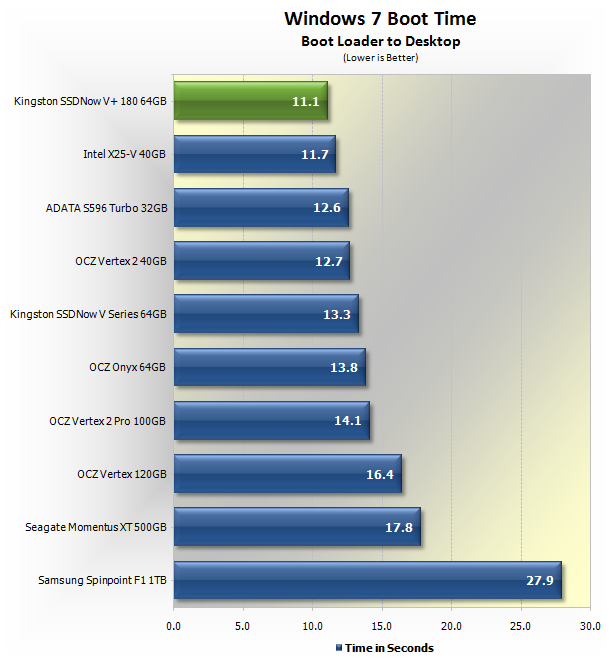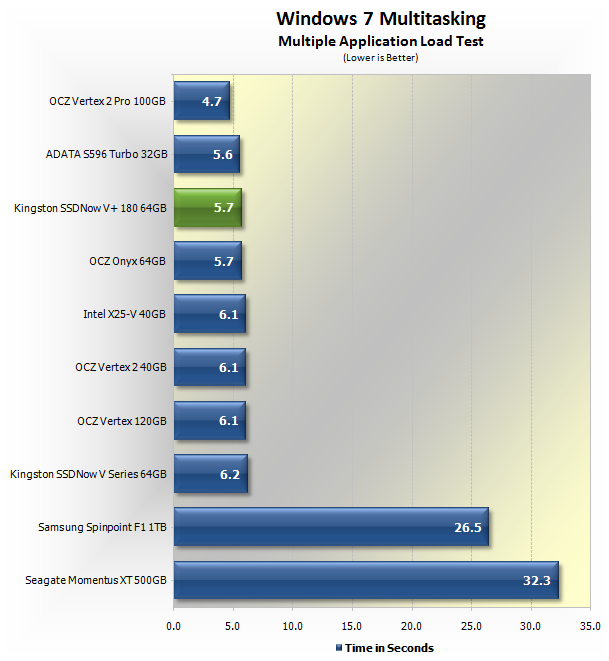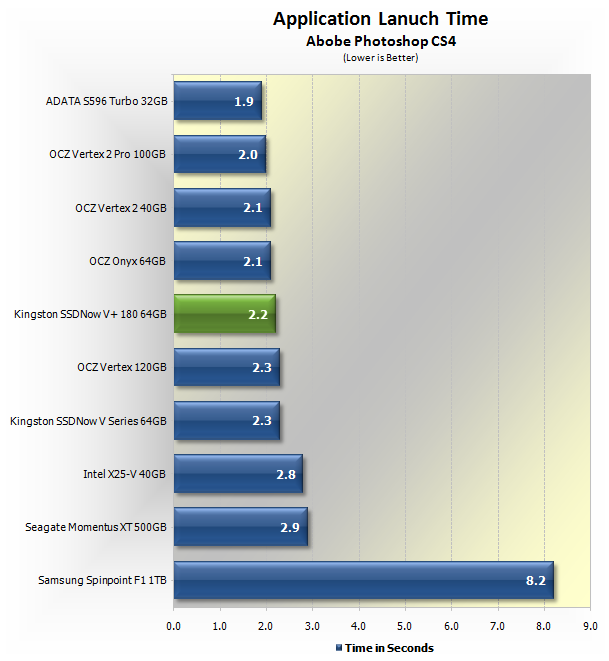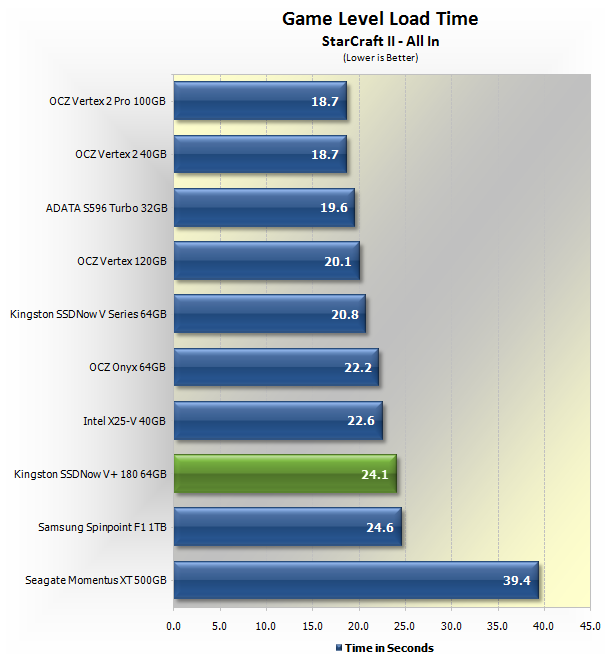Benchmarks: Real-World Applications

The Windows 7 boot time test is measured from the moment the OS loading screen appears to the time the Windows desktop is fully loaded. All SSDs perform exceptionally well here and there is very little difference between them.
The Kingston SSDNow V+ 180 64GB was the fastest budget SSD we tested, taking just 11.1 seconds to load Windows. The Intel X25-V 40GB took second place at 11.7 seconds. The SSDNow V+ 180 64GB was 17% faster than the SSDNow V Series 64GB and 20% faster than the OCZ Onyx 64GB.

For the application load test, we launch the following applications on Windows 7's startup: Internet Explorer, Outlook 2007, Access 2007, Excel 2007, PowerPoint 2007, Publisher 2007, Word 2007 and Photoshop CS4. The test starts when the Windows 7 startup sound loads to the time the final application is loaded.
While the Kingston SSDNow V+ 180 64GB loaded Windows 7 fastest, this wasn't the case when measuring multitasking performance. Nonetheless, with a completion time of just 5.7 seconds the SSDNow V+ 180 64GB was still very fast, and this appears to be a standard time for affordable SSDs.

This test measures the time it takes to launch Adobe Photoshop CS4 from the time we click on the icon to the time the program is completely loaded and ready to use. The Kingston SSDNow V+ 180 64GB took just 2.2 seconds and again this appears to be a standard time for affordable SSDs. This was roughly the same time set by the Kingston SSDNow V Series 64GB and OCZ Onyx 64GB as well.

The next test was performed by loading the last level of the StarCraft II single player campaign. The test began when the loading screen appeared and stopped once the "click to play" message appeared.
The Kingston SSDNow V+ 180 64GB showed very strong performance when loading Windows 7 and standard performance in multitasking and application loading, but its StarCraft II level loading performance is quite poor. The SSDNow V+ 180 64GB took roughly the same amount of time as the Samsung Spinpoint F1 1TB hard drive making it 16% slower than the Kingston SSDNow V Series 64GB.